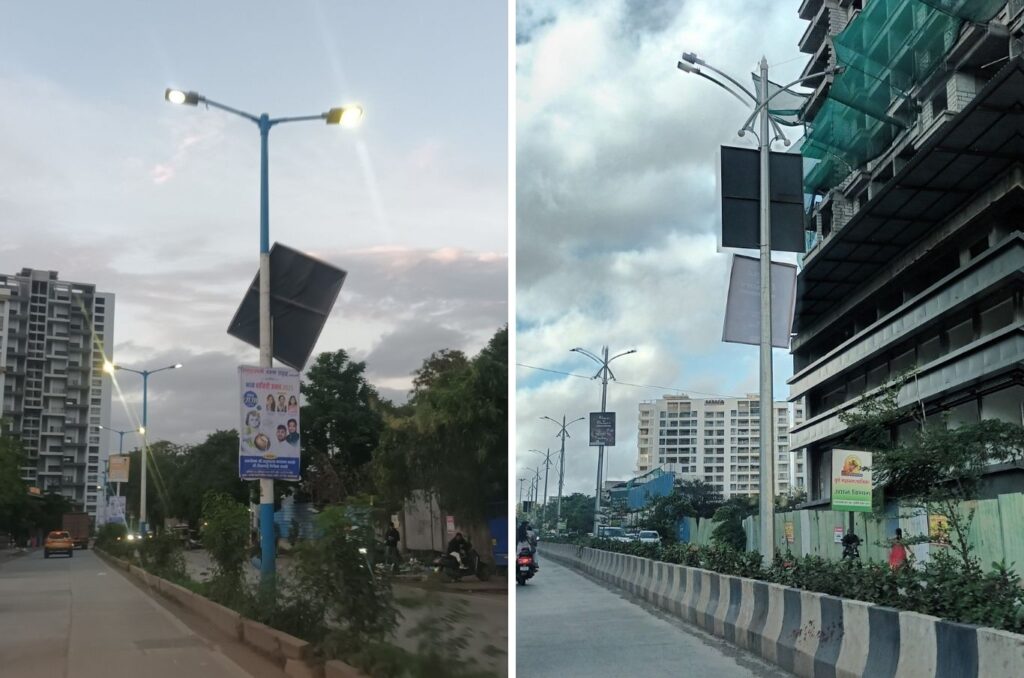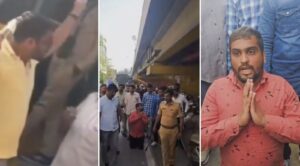Pune: Citizens Demand Criminal Action Against Rampant Illegal Flexes, Hoardings In Mohammadwadi-NIBM Annexe

Pune: Citizens Demand Criminal Action Against Rampant Illegal Flexes, Hoardings In Mohammadwadi-NIBM Annexe
Pune, August 25, 2025- Residents across Mohammadwadi-NIBM Annexe, particularly between Anand Van and Dorabjee Heritage Mall and from SM Ghule Chowk to Ganga Florentina, are raising their voices against the unchecked and illegal proliferation of flex boards and banners. These hoardings—erected by political parties, social organizations, and commercial entities—are covering street poles, road dividers, and even pedestrian walkways, creating a visual mess and posing serious traffic safety concerns.
“These illegal flexes are not just a civic nuisance—they are a criminal offence. The people behind them must be investigated for any criminal antecedents,” said Jaymala Dhankikar, a civic activist, in a strongly worded post on X. “The growing illegal occupation of visual space can lead to accidents by blocking traffic views. The traffic department must file criminal cases, not just remove them.”
Citizens Raise Constitutional and Legal Concerns
Dhankikar has also highlighted that this defacement violates citizens’ fundamental right to a clean and aesthetic environment under Article 21 of the Constitution, which guarantees the Right to Life. She further raised the issue of selective enforcement—where authorities act on some illegal banners but ignore others—arguing that it undermines the constitutional guarantee of equality before the law.
The Supreme Court has previously remarked that “Rampant political hoardings have defaced public property across the Mohammadwadi-NIBM Annexe area despite clear provisions in the 1995 Act. Authorities have failed to take penal action. This violates citizens’ right to a clean and aesthetic environment under Article 21. Visual clutter affects the aesthetic and environmental quality of public spaces. This defacement must be treated as an environmental issue.”
Legal Precedents and Judicial Intervention
The Bombay High Court has consistently taken a firm stance against illegal flex banners, hoardings, and posters, particularly those used by political, religious, and commercial entities to encroach upon public spaces. Through a series of judgments and directives, the Court has emphasized that no individual or organization has the right to deface roads, footpaths, or public infrastructure for personal or political gain. It has underscored the environmental, civic, and safety hazards posed by such banners—especially those made of plastic—while holding municipal corporations and state authorities accountable for failing to enforce the law. The Court’s approach reflects a growing judicial push to reclaim public spaces and promote civic discipline, particularly during politically sensitive periods like elections.
In addition to ordering mass removal drives and directing the registration of FIRs, the High Court has gone further to demand structural reforms in monitoring and enforcement. This includes requiring QR-coded permits for legal hoardings, mandating vigilance post-election results, and imposing personal liability on government officials for non-compliance. By framing defacement as a violation not only of municipal rules but also of the constitutional right to a clean environment, the Court aligns its decisions with broader public interest jurisprudence. The rulings collectively set a precedent that prioritizes environmental ethics, public order, and administrative accountability over short-term political expediency.









